Indonesia Raises Key Rate by Half-Point Again to Aid Rupiah
This article from Bloomberg may be of interest to subscribers. Here is a section:
The central bank will defend the rupiah in line with fundamentals, Warjiyo said. It will monitor forex supply, and strengthen the currency stabilization policy, he added.
“The hike reflects less concern of inflation but more on the need to anchor FX stability,” said Wellian Wiranto, economist at Oversea-Chinese Banking Corp. in Singapore, who now sees a terminal rate of 5.25%. “Going forward, downside risks to growth will gain more prominence.”
A weakened rupiah threatens to fan imported inflation, adding to the risk posed by higher fuel costs that’s sent consumer price gains to a fresh seven-year high of 5.95%. Bank Indonesia expects inflation to climb further to 6.3% at the year-end before returning to its 2%-4% target next year.
The central bank retained its 2022 growth forecast for the economy, expecting it to be at the upper end of its 4.5%-5.3% target, while flagging risks from a slowing global recovery. For now, it expects to end the year with a current account surplus of 0.4%-1.2% of gross domestic product -- better than its previously estimated 0.5% of GDP.
The Indonesian Rupiah spent most of 2021 in a tight range relative to the Dollar but broke down in May and is now trending lower. The pass through of inflationary pressures from the developed world into ASEAN didn’t pick up until early this year. Many ASEAN countries did not engage in the same degree of monetary stimulus so effect was delayed. However, the surge in energy prices is increasing the cost of fuel subsidies and putting downward pressure on regional currencies.
This report from the World Bank may also be of interest. Here is a section:
Effective insolvency frameworks also help mitigate the risks of credit misallocation. Government efforts to mobilize revenue, as Indonesia has recently done through reform of its tax system, and increase efficiency of spending, will also limit the need for government borrowing which could deprive the private sector of investment funds. In the longer term, developing deeper and more diversified financial systems would help achieve development goals.
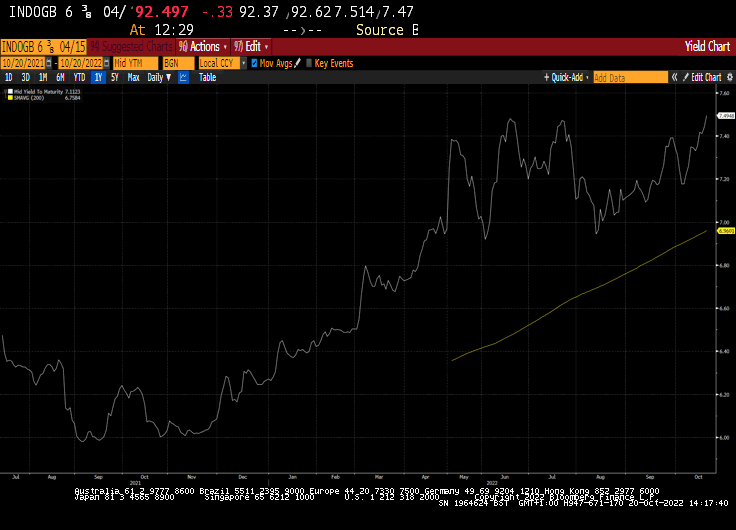 While inflation is a global issue, the strength of the dollar is a more pressing concern. The Indonesia 10-year benchmark 6.375% 2032 local currency bond is yielding 7.5% and trending higher. That injects urgency into stabilising the currency and controlling the trend of inflation.
While inflation is a global issue, the strength of the dollar is a more pressing concern. The Indonesia 10-year benchmark 6.375% 2032 local currency bond is yielding 7.5% and trending higher. That injects urgency into stabilising the currency and controlling the trend of inflation.
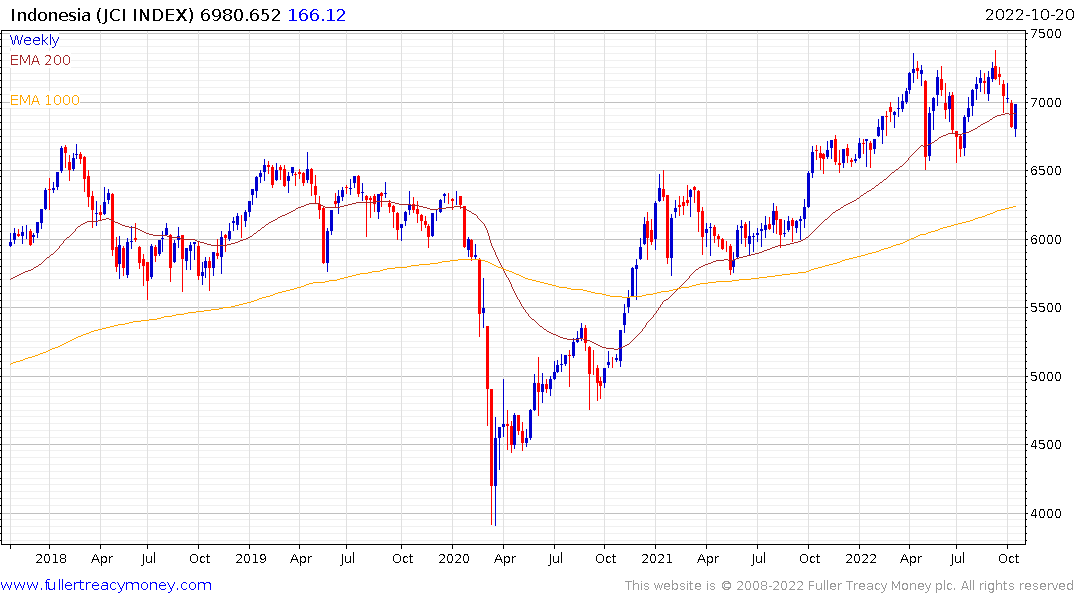
The stock market responded favourably to the central bank action with the Jakarta Composite rebounding in a dynamic fashion. Several recently listed companies were among the best performers including OBM Drilchem (oil services), Batavia Prosperindo Transportation (fleet financing) and Cahayaputra Asa Keramik (ceramics).
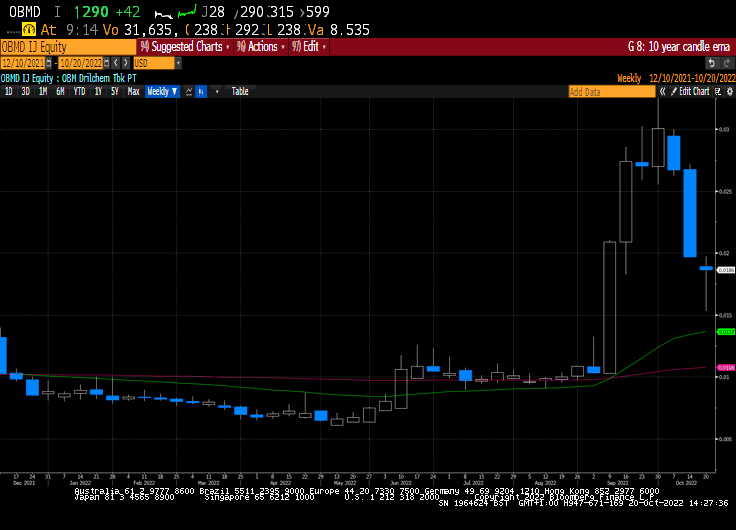
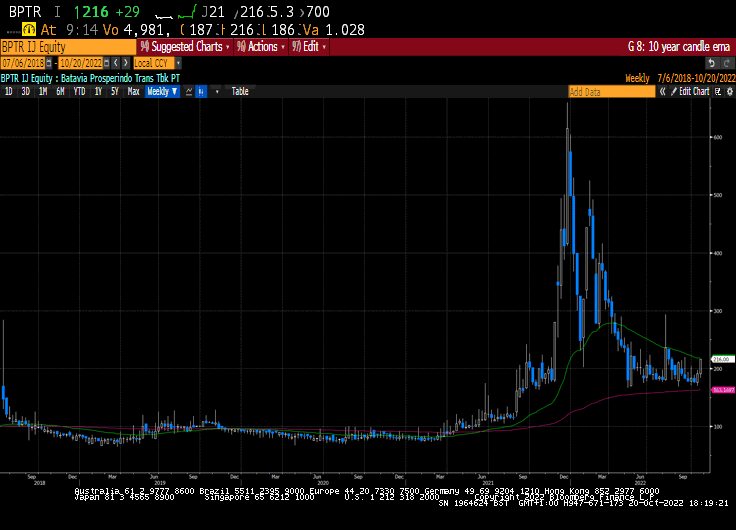
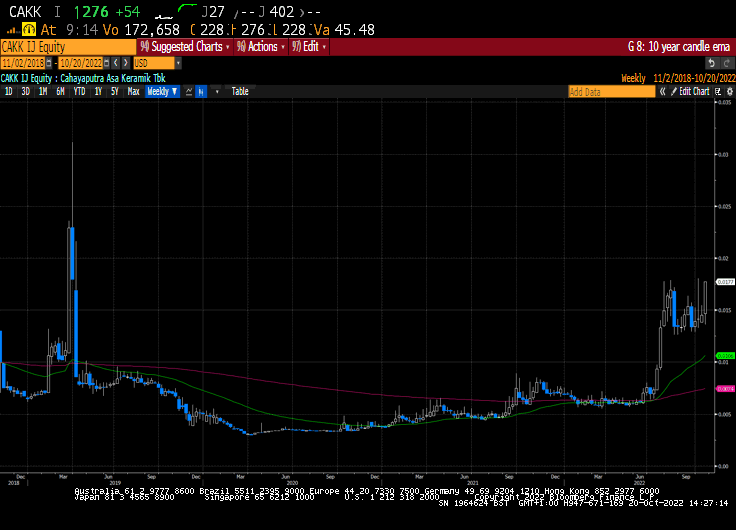
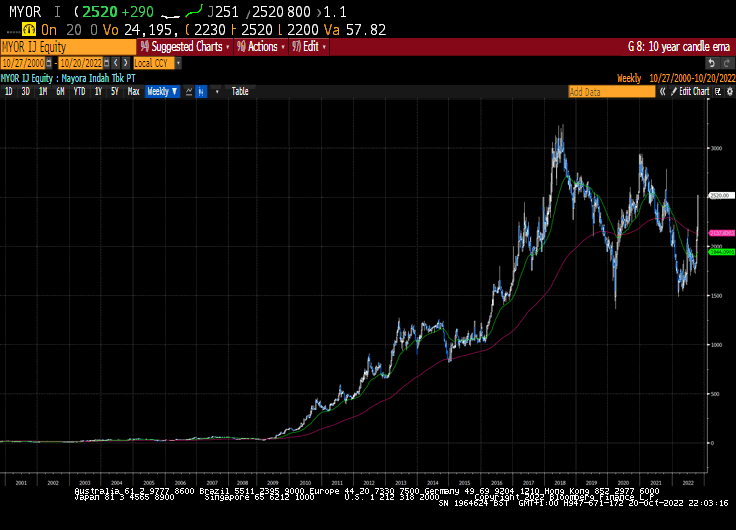
As cocoa and coffee prices roll over margins at food processors should improve. Mayora Indah is bouncing emphatically from the lower side of its range.
Investors appear to be starting to place bets on the ex-US countries and sectors that will thrive in a post strong Dollar environment. The belief is rates will peak at around 5% in the first quarter of 2023 and inflation will decline precipitously afterwards. The odds are that coincide with a recession but the epicenter of risk is developed market pensions, endowments and sovereign wealth funds. Emerging markets are under owned and have scope to outperform subsequently.
Back to top


